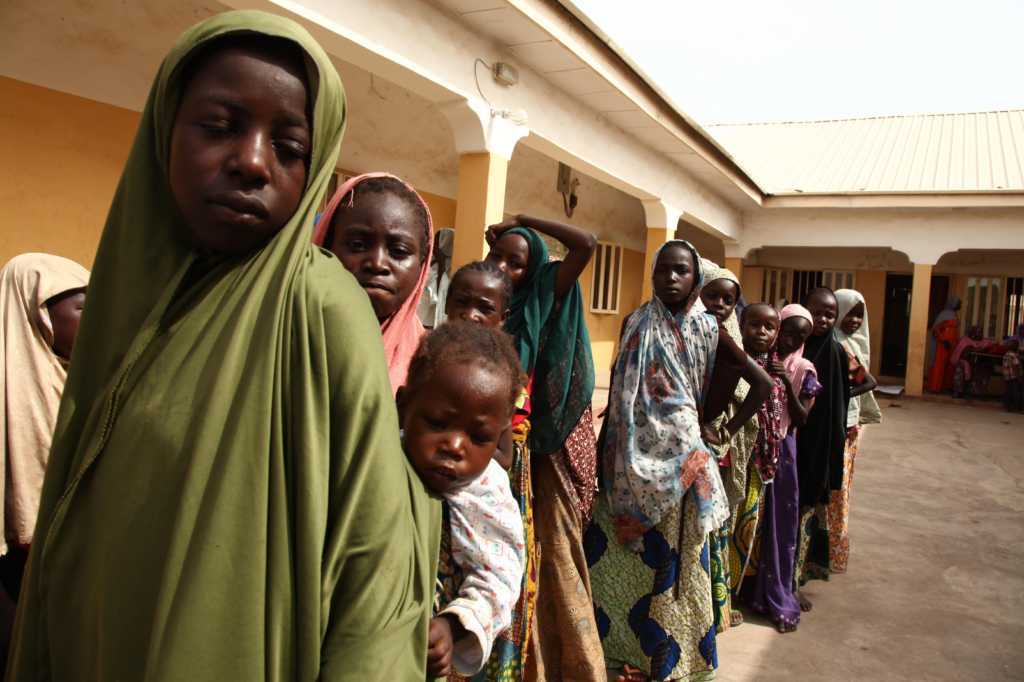Despite releasing dozens of others, Boko Haram militants continue to hold one Nigerian schoolgirl captive. Why? Because she refuses to renounce her faith in Jesus Christ. The murderous Islamist militants have refused to release teen Liya Sharibu because she is a professing Christian.
READ: ‘FARM MURDER and RAPE’: Nearly 400 White Farmers Killed in South Africa in 12 Months
When the girl’s mother, Rebecca, heard the trucks rolling into her village packed with the kidnapped schoolgirls, she was convinced she was going to experience a joyful reunion with her precious daughter. But when she quizzed Liya’s friends over her whereabouts, she was heartbroken once again.
“Where is Leah, I can’t find my Leah, why did you leave her there?” Rebecca asked Liya’s classmates, according to the Guardian.
“Boko Haram told Leah to accept Islam and she refused,” the girls replied. “So they said she would not come with us and she should go and sit back down with three other girls they had there.”
The girls continued: “We begged her to just recite the Islamic declaration and put the hijab on and get into the vehicle, but she said it was not her faith, so why should she say it was? If they want to kill her, they can go ahead, but she won’t say she is a Muslim.”
Liya’s father, Nata, backed up this version of events. He explained that while he was devastated by the news of his daughter’s continued captivity, he was encouraged by her courageous faith in the face of such grave peril.
“Boko Haram insurgents decided not to release my daughter because she refused to denounce Christ,” Nata said, according to ABC News. “I am happy for that, even though as a father I wish she had returned home as the rest. But God is in control.”
In a statement, Nigerian President Muhammadu Buhari has insisted that Sharibu’s daughter is now “the only Dapchi schoolgirl still in captivity” and has promised that she “will not be abandoned.” Almost all of the Dapchi schoolgirls were released last Wednesday, but there are still five who remain unaccounted for and are feared dead.
Boko Haram militants attacked Dapchi, a town in Yobe State, on the night of Feb. 19 and kidnapped 110 students from the local boarding school. According to Nigeria’s minister of information and culture, Alhaji Lai Mohammed, it was over a month later that 104 of the girls were released by the Islamist terror group.
“They were not dropped in one place. They were dropped on the road and they went back across Nigeria to their parents’ houses,” Mohammed told reporters in the Nigerian capital of Abuja.
The minister’s spokesperson, Segun Adeyemi, detailed that the girls were released “through back-channel efforts and with the help of some friends of the country.” Incredibly, no ransoms were paid, and there was no need for the use of military force in order to secure the mass release.
“It was agreed that there would be no force and no confrontation,” Mohammed said.
One of the girls described her horrific experience, explaining how she saw five of her friends die after they were loaded into trucks and driven off into the bush.
“They died while we were being taken because we were loaded like woods and people sat on them,” Fatsuma Abdullahi said, as reported by ABC.
Another girl confirmed that the captors refused to release one of her classmates due to her being a Christian. It is still unclear whether this was Liya Sharibu or another student.
“We were freed because we are Muslim girls and they didn’t want us to suffer,” Khadija Grema said. “That is why they released us.”
The name “Boko Haram” means “Western education is forbidden” in the Hausa language, and the Islamic group has become well-known for its brutal kidnappings of girls who choose to enroll in school.
Though the militants decided to release most of the girls from captivity, they left a threatening message with local residents: “We did it out of pity. And don’t ever put your daughters in school again,” they said as they unloaded dozens of their petrified captives.
In April 2014, Boko Haram kidnapped 276 schoolgirls from their boarding school in the town of Chibok, just 170 miles away from the most recent attack.
(H/T: ABC News)



